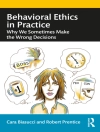With points of departure in philosophy, logic, social psychology, economics, and choice and game theory, Infostorms shows how information may be used to improve the quality of personal decision and group thinking but also warns against the informational pitfalls which modern information technology may amplify: From science to reality culture and what it really is, that makes you buy a book like this.
The information society is upon us. New technologies have given us back pocket libraries, online discussion forums, blogs, crowdbased opinion aggregators, social media and breaking news wherever, whenever. But are we more enlightened and rational because of it?
Infostorms provides the nuts and bolts of how irrational group behaviour may get amplified by social media and information technology. If we could be collectively dense before, now we can do it at light speed and with potentially global reach. That’s how things go viral, that is how cyberbullying, rude comments online, opinion bubbles, status bubbles, political polarisation and a host of other everyday unpleasantries start. Infostorms will give the story of the mechanics of these phenomena. This will help you to avoid them if you want or learn to start them if you must. It will allow you to stay sane in an insane world of information.
“With this brilliant book, we have been warned. It is up to all of us in the world today to be stewards of he common resource that is trustworthy and relevant information”.
Adam Brandenburger, Stern School of Business, NYU
“It is a highly recommended read for social scientists and concerned citizens alike”.
Christian List, London School of Economics
Jadual kandungan
Chapter 1: Off We Go.- Part 1: How Information Technologies May Amplify Irrational Group Behavoir.- Chapter 2: Common Knowledge and Public Space.- Chapter 3: Pluralistic Ignorance and Bystanders.- Chapter 4: Informational Cascades and Lemmings.- Part Ii: Why Free Choice, Markets and Deliberation Cannot Protect Us.- Chapter 5: Choice: Framing Choice.- Chapter 6: Markets: Choosing Frames.- Chapter 7: Deliberation: Polarized People.- Chapter 8: The Constitutive Games We Play.- Part 3: Wars, Bubbles and Democracy.- Chapter 9: Wars.- Chapter 10: Bubbles.- Chapter 11: Democracy.- Part 4: Postscript: The Social Power Of Information Architecture.- Chapter 12: The Social Powers of Infostorms.
Mengenai Pengarang
Vincent F. Hendricks is Professor of Formal Philosophy at The University of Copenhagen. He is Director of the Center for Information and Bubble Studies (CIBS) sponsored by the Carlsberg Foundation and was awarded the Elite Research Prize by the Danish Ministry of Science, Technology and Innovation and the Roskilde Festival Elite Research Prize both in 2008. He was Editor-in-Chief of Synthese: An International Journal for Epistemology, Methodology and Philosophy of Science between 2005-2015.
Pelle Guldborg Hansen is Behavioral Researcher at Roskilde University; Director of ISSP — The Initiative of Science, Society & Policy at Roskilde University and University of Southern Denmark; and member of the Prevention Council of the Danish Diabetes Association. He also heads the independent research group i Nudge You and is chairman of the Danish Nudging Network and co-founder of TEN — The European Nudge Network.












